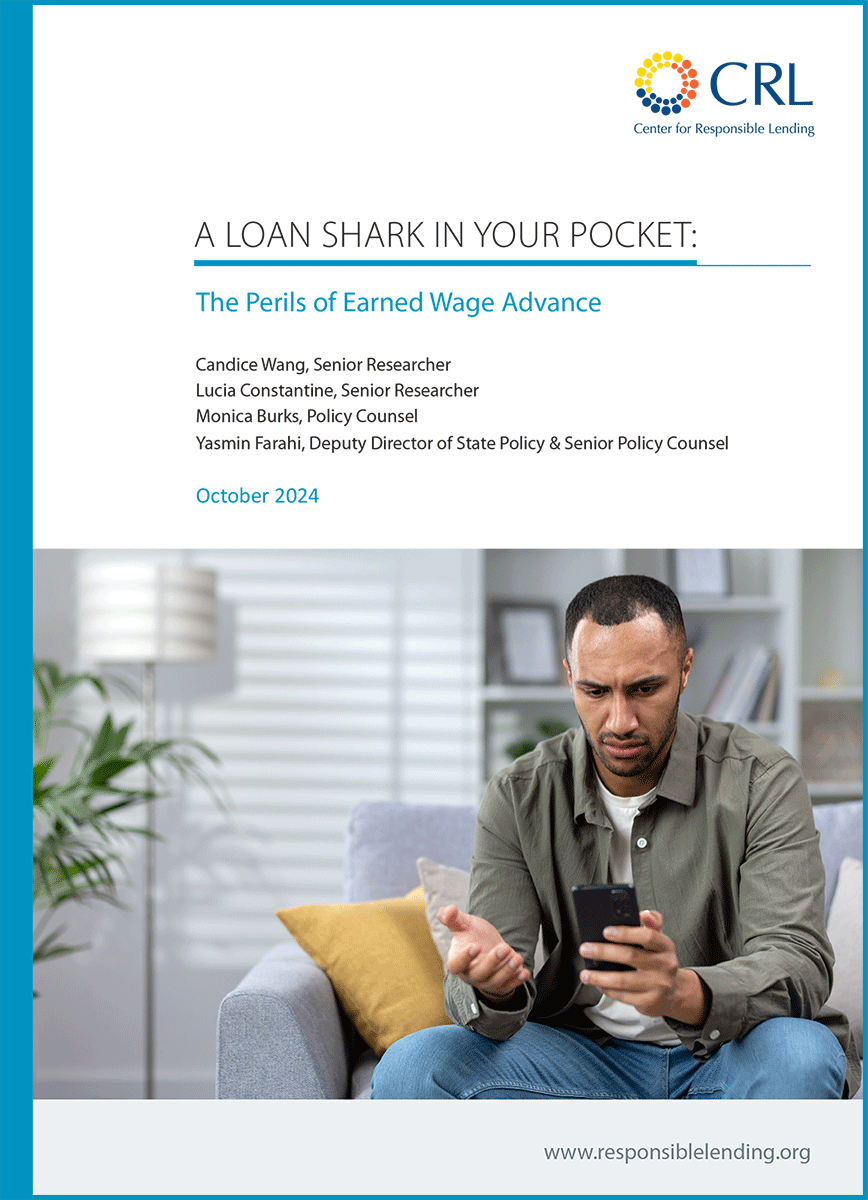Online lenders offering earned wage and cash advances primarily through cell phone apps have proliferated in the past decade, with companies claiming that existing credit laws do not apply to their products. As a result, consumers have not been made aware of the true costs and potential harms of advances. Research by CRL and others has demonstrated using these fintech cash advances leaves many consumers worse off— paying high fees for small loans, increasing their risk of overdraft, and having to reborrow paycheck after paycheck. Usage patterns, associated harms, and revenue generation models of earned wage advance (EWA) are similar to those of traditional payday lending, but EWA borrowers can be even more easily ensnared in a debt trap when taking out loans with a few taps on their cell phones.
In 2024, regulators and legislators across the country have been barraged with lobbying from the fintech advance industry aiming to create loopholes for their high-cost loan product. While some banking regulators have recognized fintech cash advances as credit products subject to their laws, state legislatures have been flooded with industry-backed bills that claim that these products are not loans and should not be subject to state credit laws. With the release of a new proposed interpretive rule, the Consumer Financial Protection Bureau (CFPB) clarified that EWA advances are consumer loans subject to the Truth in Lending Act (TILA), which allows customers to compare options by requiring lenders to disclose the cost and fees. Going into a new year with this guidance, state legislators and regulators should strengthen and enforce their own lending laws to protect consumers.
This research report provides an update to the Center for Responsible Lending’s recent publications on earned wage and cash advance, Paying to Be Paid and Not Free. It offers new research insights and explains recent regulatory developments at the federal and state level.
